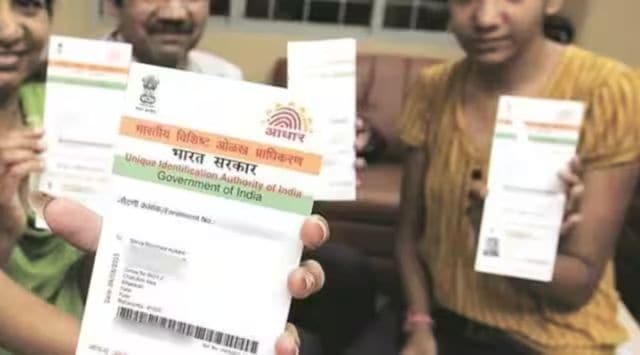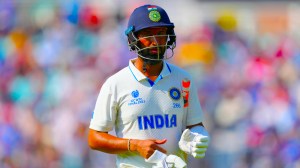Mandating Aadhaar for private school EWS admissions unconstitutional: Delhi HC
The circulars were stayed till November 6, against which the Delhi government had appealed.
 The division bench said that it was only dealing with an interim order and the single judge is yet to take a final view and hence the bench stated that it does not wish to deliberate on the issues urged in the government’s appeal. (Representational image/File)
The division bench said that it was only dealing with an interim order and the single judge is yet to take a final view and hence the bench stated that it does not wish to deliberate on the issues urged in the government’s appeal. (Representational image/File) The Delhi High Court has recently upheld a single judge’s order suspending the Delhi government circulars mandating furnishing of Aadhaar for admissions to private unaided schools in the city under the Economically Weaker Section (EWS), Disadvantaged Group (DG) and Children with Special Needs (CWSN) categories.
A division bench of Chief Justice Satish Chandra Sharma and Justice Sanjeev Narula in its September 13 order observed, that the view taken by the single judge bench earlier was “completely in consonance with” the Supreme Court’s 2018 judgement in the K.S. Puttaswamy case and “…the issue of obtaining sensitive personal details of a child, as observed in the K.S. Puttaswamy case, would have the potential of infringing their right to privacy under Article 21 of the Constitution of India.”
The court upheld the single bench’s order staying the government circular as they “are prima facie in conflict with the constitutional provisions”.
On July 27, a single judge bench of Justice Anup Jairam Bhambhani had in an interim order stayed the operation of two circulars dated July 12, 2022 and February 2, 2023 issued by the Directorate of Education as they “mandate and require the Aadhaar Card/Number of a child for participating in the Computerised Lottery Scheme for school admissions”.
The circulars were stayed till November 6, against which the Delhi government had appealed.
The division bench said that it was only dealing with an interim order and the single judge is yet to take a final view and hence the bench stated that it does not wish to deliberate on the issues urged in the government’s appeal.
The father of a five year old child had approached the single judge alleging that his child was unable to participate in the computerised lottery scheme, drawn by the Delhi government, for allocation of seats in schools for the academic year 2023-24, due to lack of Aadhaar Card/ Number.
The bench noted that the single judge had based his decision on the apex court’s 2018 judgement in “Justice K.S. Puttaswamy (Retd.) and Anr. v. Union of India and Others.”
The bench said that in this landmark decision, the Constitution Bench of the Supreme Court categorically observed that “school admission of a child does not fall under Section 7 of the Aadhaar Act, 2016 as it is neither a subsidy nor a service.”
The court also observed that “making the submission of an Aadhaar Card or Aadhaar Number mandatory would contravene fundamental rights safeguarded by Article 21 of the Constitution of India, 1950,” and hence cannot be constitutionally justified.
The Delhi government argued that the requirement for an Aadhaar Card or Aadhaar Number serves a practical purpose and aims to eliminate duplicate applications by using the child’s “unique identifier, thereby ensuring accurate identification”. It was also argued that the Delhi government’s decision is a “policy initiative” designed to “modernize the admission process” for EWS/DG category in entry-level classes in private, unaided, recognised schools.







